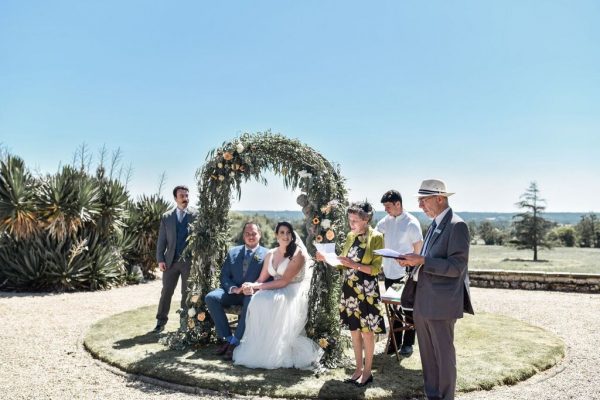
by Michael | Nov 9, 2021 | Blog
I confess that I am approaching this subject tentatively. When I last wrote about it, a year or so ago, micro-weddings were almost the only type of weddings taking place. It made no sense to talk about wedding trains, processions, and the like.
Things have changed somewhat, although I dare not surmise for how long. As I write, weddings are unrestricted and many are back to being big events. So this may be relevant to more people.
Groom
The groom has probably the easiest job. He needs to welcome guests arriving for the wedding ceremony. Otherwise, he may only have a few words to say (“I do”, for example?), at least until he gives a speech at the reception.
He also may have the Best Man and ushers (groomsmen) to help him.
Bride
The bride does have the easiest job! She needs to look beautiful and negotiate walking in her bridal dress.
She may well do some socialising afterwards (and, nowadays, possibly, give a speech), but, mainly, she has to shine!
Parents
Depending on what has been agreed, parents may only have a welcoming job (after their financial contribution, perhaps), but the bride’s father may have to give a short speech. He has to welcome everybody and thank them for coming.
Best Man
The Best Man (or Woman) is there to support the Groom. One task is to keep him calm; another may be to fetch something for him or, perhaps, liaise with suppliers. The idea is to keep things moving smoothly. He may well have to look after the couple’s rings until called forward to present them.
His speech at the reception should be a highlight. He should avoid making it all groom-centered and being too rude; he should steer clear of politics, religion and crudity too!
Bridesmaids and Groomsmen/Ushers
All participants should be clear about their cue for entry, where they go to and what happens when they’ve got there! A rehearsal isn’t always possible, I know, but is a good idea. It should be stressed that they process in slowly. Their role is decorative, but important.
Ushers may direct guests to their seats and be of general help.
A potentially stroppy child usher can be entrusted with the task of marshalling any gifts that are brought.
The officiant can normally oversee what may be needed, but, if everybody knows their role, then the potential for disaster is significantly minimalized!
photo: taraflorence.com
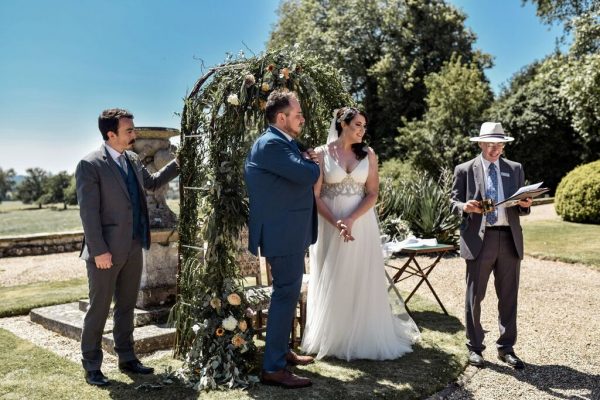
by Michael | Jun 1, 2021 | Blog
Although micro-weddings can sometimes be the cheapest option, the accumulation of expenses associated with a wedding can seem relentless.
Why the expense?
Some suppliers sense ‘easy pickings’ when a couple approaches them. Prices can be raised just because it’s for a wedding. These vendors may sense an opportunity to exploit excited, bemused, inexperienced people. The couple may not know what is a fair price or what to expect from a supplier. They may simply stop at the first enquiry.
These suppliers can include venues, dressmakers, caterers, florists, make-up artists, celebrants (yes, even some celebrants!), photographers, planners, entertainment arrangers, vehicle hire – anyone and everyone! But don’t be alarmed – the vast majority are honest!
Justification
Of course, suppliers with integrity will still be charging for what they do. And some do a very great deal. Bear in mind that much of what wedding suppliers provide happens behind the scenes.
For example, as a celebrant, I don’t just turn up early on the day, deliver the ceremony and then go home. There is a massive amount of liaison and work beforehand to ensure that the ceremony is perfect on the day, and fully reflects the couple’s personalities and beliefs.
Depending on your budget and desires, a wedding may seem expensive. Your expectations matter. If you want specialists, then it’s fair that you will be paying to benefit from their unique training, experience and expertise.
Saving
There are ways to reduce costs without sacrificing quality. You can get married Monday to Thursday and/or in the morning or afternoon. That should get you cheaper rates. Avoid peak times (Bank Holidays and summer in particular). Choose flowers that will be in season. Have a cash bar. Only supply a limited amount of alcohol (a surprising amount gets wasted anyway). Be creative!
It’s certainly an important part of the buying process to shop around. The cheapest supplier may well not be the best (although the dearest doesn’t have to be, either!). You need to feel confident that the suppliers you choose will deliver what they claim. Although their testimonials are a useful guide, you probably need to go with your heart. Again, from a celebrant perspective, I would not want to be married by an officiant I didn’t feel comfortable with.
With judicious ‘homework’, you might be surprised at what good value your wedding turns out to be!
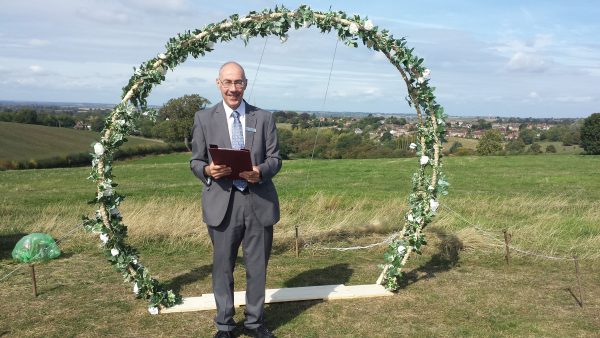
by Michael | Apr 26, 2021 | Blog
Most people have little, or no, experience of putting together a ceremony. The internet can offer some help, but consulting a professional is wise. However, how do you know which supplier is going to be a match for you?
Of course, you’ve got to decide what you want and how much you are willing to spend. One rule of thumb is that, if you really like someone but they’re just out of your price range, it’s worth going with them. You can probably cut a corner elsewhere to cover the shortfall.
I’m not going to talk here about the reception, as my brief is the ceremony. There are still decisions to be made, though.
The venue and the officiant are paramount – and will each have their own advantages as well as potential drawbacks.
Venue
If you are not marrying in church, you essentially have two choices: the Register Office or a venue such as a hotel. If the venue is not licensed for weddings, you need to go to the Register Office first (with two witnesses). Then you can have the wedding of your dreams (see next section) in the venue of your dreams.
If you’re choosing a hotel, say, make sure you have visited – and love – it. Ensure you have spoken to the Event Planner and understand exactly what the terms and conditions are. For example, does your hire cover the whole venue? What about payment terms? What social distance safeguards are they employing? What happens if you have to cancel?
Celebrant
If you’re going with a celebrant as officiant, there are many different types. Humanists should not even mention “God” or include any religious elements in their service (though a few do seem to be doing that nowadays). Wiccan celebrants will include pagan (nature-related) elements. Then there are independent celebrants who will include some conventional religious readings or rituals, if desired, but who are comfortable with secular ceremonies.
To clarify, an independent civil celebrant will normally tailor the service to your expectations and beliefs, so you can have as much – or as little – religion as you want. Your day really can be special and the way YOU want it.
Choices
Finally, you need to be sure of venue and celebrant (especially, as you’ll want to be comfortable for your actual marriage).
Personal recommendations are always good. Otherwise, websites will give you an idea, but personal contact is even more revealing. Is this a venue that excites you? Will this celebrant listen to your wishes and be someone you can feel confident about?
Don’t be afraid to ask questions. Check Terms and Conditions and query anything unclear.
If you have any questions in the meanwhile, please feel free to ask me!
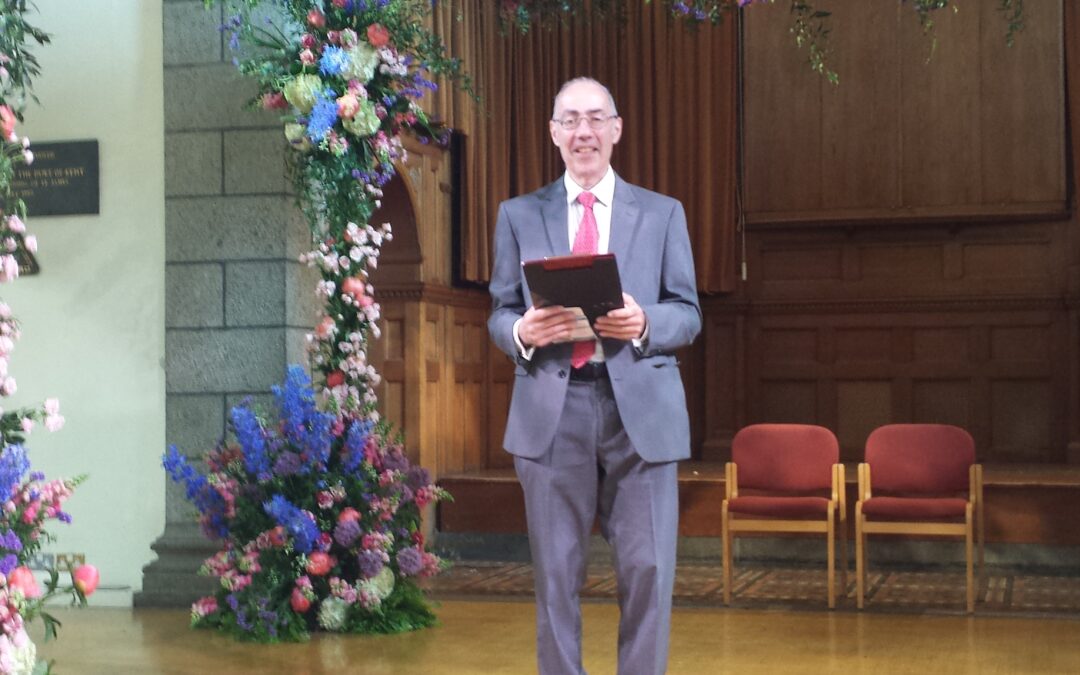
by Michael | Apr 20, 2021 | Blog
I’m often asked what is my role. How can I conduct a wedding? Surely, that’s got to be either a priest (or equivalent) or else the registrars?
What people often don’t realise is that those are not the only options.
As we’ll find out, there’s also a civil celebrant (like me!) who can do the job.
Religious
If you opt for a full religious service in England & Wales, then of course you go to your church (or equivalent). They will explain all that’s involved. Not every branch of Christianity is catered for here, though. Church of England, Quaker or Jewish are the only types of religion included.
For other sects, you can marry in a non-C of E church (say), but the marriage will not be legal until you have made an appointment and been to the Register Office. Without the registrars’ participation and the pronouncing of certain words, you will not qualify as legally wed.
Civil
If you choose the civil route, you need to know that the service must be totally non-religious. You can be sure that it will be a totally secular ceremony, even though the content may vary a bit from registrar to registrar.
The Register Office service will cost in the region of £100. Pre-COVID, they could come out to a venue licensed for weddings, albeit for another £500 or so. As I write, this is no longer possible, and, anyway, wedding numbers are still limited severely.
Celebrant
There is another option, however, which all too few people know about. It is particularly useful if:
- You may not want a full religious service
- You may want one, but are prevented from marrying in your church/synagogue etc. For example, you are a (Catholic) divorcee or yours is a mixed-faith ceremony
- You (or even your parents!) want to have just a smidgen of religion in your service
Note that, a humanist celebrant, like the registrars, will not allow any religious references. So go for an independent celebrant, and you can enjoy a personalised ceremony with as much or as little religion as you want.
Again, this is not a legal ceremony, so you still have to go to the registrars. Afterwards, you can enjoy the ceremony you actually want, compiled and conducted by your civil celebrant. It can be in the venue of your dreams, and, to all intents and purposes, be your actual wedding. It can reflect your personalities and beliefs, with inspiring spiritual – or even funny – readings, and contain personalised sections, such as self-written vows.
So don’t go thinking that your big day can’t be the way you want it! Because it can!
Have a chat with me, and I’ll show you how.
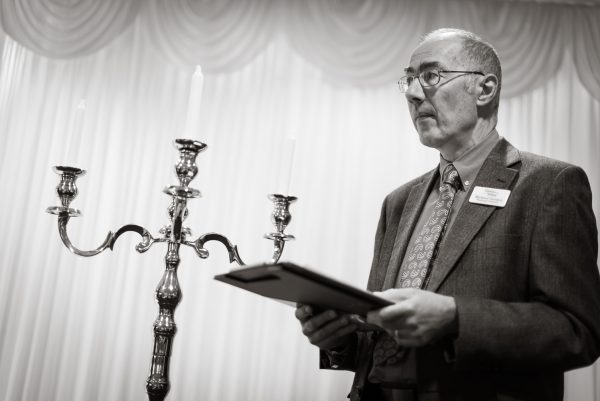
by Michael | Jan 20, 2020 | Blog
You’re getting married? Brilliant! Have you decided who will officiate? Will it be a priest (or equivalent), a registrar or a civil celebrant? Did you even realise that you have a choice?!
[This post is designed for English or Welsh couples, although laws are set to change in the not-too-distant future. Separate rules apply to Scotland and Ireland.]
Religion
If you are
marrying in an Anglican church, this is as simple as it gets. You will be able
to combine religious and legal in one ceremony. The same applies for Jewish and
Quaker weddings.
Otherwise,
you will have to arrange a trip to the register office and to the church before
you can be declared married.
Registrars
The registrars come at the other end of the spectrum to priests, although both services are pretty much standardised. The registrars are not permitted even to mention God or religion. What they do, however, is to pronounce the legal words. Without these being uttered and witnessed, no marriage is valid.
You need to make an appointment with the registrars and go to their office with two witnesses. Or the registrars may come to the venue of your choice (currently, there are restrictions, such as a minimum requirement of four solid walls). Be aware that this will cost you substantially more.
The registrars will offer you a minimum of choice as to the service structure. And their presentation skills can vary wildly!
Celebrants
Until the law changes, civil celebrants cannot marry people legally. They can bless them, conduct a part-religious (or even wholly-religious) service, hand-fast them, get them to sign a marriage certificate afterwards, but none of this makes the marriage legal.
So what
normally happens in these cases is that the couple marries first (at the register
office, unless the registrars come out to their venue). This can be done in a
private room or in front of guests.
When the registrars have left, the civil celebrant can stand up and publicly conduct the personalised ceremony the couple have been dreaming of. It may be religious, or partly so; it may be (partly) humorous; it may contain ritual; active participation may be invited; favourite readings or music may be chosen; it may well be unique to the couple.
At the end, the celebrant may declare the couple legally married (as long as the registrar service has been completed!).
The point is that, by using a celebrant, you have free choice as to the tone and content of your ceremony on your big day.
If you want
any further clarification on this issue, please feel free to contact me.





